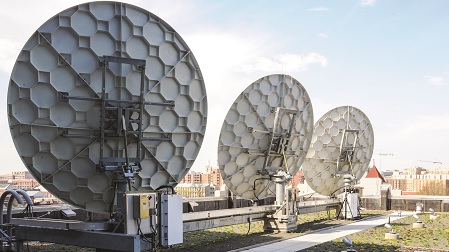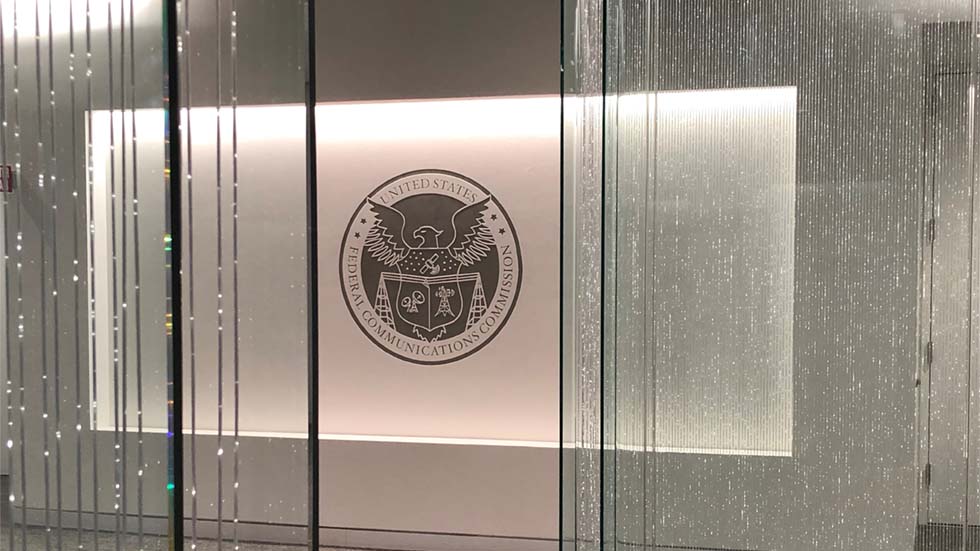FCC Sets C-Band Auction Procedures
Auction scheduled to begin on Dec. 8

WASHINGTON—The details for how interested parties can apply and participate in the C-band spectrum auction have been finalized by the FCC.
The FCC, during its August open meeting, finalized the application and bidding procedures for the auction of the lower 280 MHz of the C-band spectrum for 5G and other advanced wireless services. As a result of this, the spectrum’s current occupants, which include satellite operators, are being relocated to the upper 200 MHz of the mid-band spectrum.
The C-band auction will offer 5,684 new flexible-use overlay licenses based on Partial Economic Areas (PEAs) for the spectrum in the 3.7-3.98 GHz band.
This public notice establishes:
- Bidding procedures for the clock and assignment phases of the auction, including two clock phase categories of generic blocks in the 46 PEAs where certain blocks are subject to the first early clearing deadline of December 2021;
- An assignment phase in which winning bidders for blocks subject to the first early clearing timeline will be assigned both interim and final contiguous frequency-specific license agreements; and
- Upfront payment and minimum opening bid amounts for bidding on the licenses as well as bidding credit caps for rural service providers and small businesses, including a cap on the overall amount of bidding credits a small business bidder may apply to winning licenses in smaller markets.
With these procedures set, as well as the FCC releasing its official Cost Catalog, the C-band auction is set to proceed with its scheduled starting date, Dec. 8.
"The C-band auction is a massive undertaking, offering up to 5,684 new flexible-use overlay licenses for 5G. And this Public Notice brings us one step closer to launching this auction on December 8," said FCC Chairman Ajit Pai. "It establishes clock phase categories for each Partial Economic Area, which will be determined based on whether incumbent earth stations in a PEA are subject to a Phase I or Phase II relocation deadline. It establishes clock and assignment phase procedures. It establishes upfront payment and minimum opening bid amounts for the new flexible-use overlay licenses. And it sets auction deadlines, as well as bidding credit caps for small businesses and rural service providers."
Commissioner Jessica Rosenworcel, who voted against these procedures, gave the following statement:
Get the TV Tech Newsletter
The professional video industry's #1 source for news, trends and product and tech information. Sign up below.
"For the first time the value of spectrum assigned in a Federal Communications Commission auction will not be determined by an efficient and effective market. Instead, bids in this auction will be distorted by a nearly $10 billion payment to incumbent satellite operators that was negotiated outside the light of day. Whatever hazy deal this agency cut with existing licensees is hard to square with our clear statutory duty to deposit auction proceeds in the United States Treasury. Moreover, this mandatory payment set by the agency falls outside of the traditional Emerging Technologies Framework, which permits voluntary, market-based transactions to repurpose spectrum for new uses. That means the public foots this $10 billion bill without the traditional tools of accountability that our auctions have relied on in the past.
"We should have worked with Congress on a more transparent path. By doing so, we could have cleared up these ambiguities. Not just for this auction but for spectrum efforts in the future."
For more information on the procedures surrounding the C-band auction, visit the FCC’s summary page.
